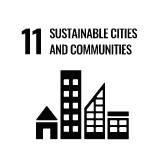Purpose starts at the source
The production of natural ingredientes implies great responsabilities and commitments. In the cultivation and extraction of the raw materials we work at hand with local producers, looking closely into the communities culture and acting responsably with the natural surrounding biodiversity. Sustainability is at the heart of NELIXIA, to ensure that future generations will have access to such natural and cultural diversity.
Based on the knowledge we gained over the past 10 years, we have created 6 fundamentals as a metholodogy followed by all our teams, so that each ingredient can be ethically produced and certified.
Based on the knowledge we gained over the past 10 years, we have created 6 fundamentals as a metholodogy followed by all our teams, so that each ingredient can be ethically produced and certified.
Our fundamentals
KNOW THE SOURCE
At NELIXIA we work directly with the producers in breathtaking natural surroundings. With the communities we learn exceptional ancestral know-how but also the complex conditions at source. Our proximity with producers allows us to secure volumes and develop a stable product.
The objectives are:
The objectives are:
- Number of producers per value chain.
- Georeferentiation of the production parcels.
- Production volumes per producer to organize our
sourcing goals.
- Socio-economic baseline.
- Risk assessment of the value chain.
KNOW THE SOURCE
At NELIXIA we work directly with the producers in breathtaking natural surroundings. With the communities we learn exceptional ancestral know-how but also the complex conditions at source. Our proximity with producers allows us to secure volumes and develop a stable product. .
The objectives are:
The objectives are:
- Number of producers per value chain.
- Georeferentiation of the production parcels.
- Production volumes per producer to organize our sourcing goals.
- Socio-economic baseline.
- Risk assessment of the value chain.
INVOLVE AND RESPECT
Getting to know better the source, allows to create a more fair and sustainable relationship with our producers while implementing a management plan to make sure the raw material will be sustainably managed and biodiversity will be protected.
The objectives are:
The objectives are:
- Create a fair and long term commercial agreement with the producers (fair pricing, code of ethics, training on the prohibited use of chemicals, study of land tenure).
- Design and implement a management plan, involving technical assistance and training on good practices for the respect of the environment.
INVOLVE AND RESPECT
Getting to know better the source, allows to create a more fair and sustainable relationship with our producers while implementing a management plan to make sure the raw material will be sustainably managed and biodiversity will be protected.
The objectives are:
The objectives are:
- Create a fair and long term commercial agreement with the producers (fair pricing, code of ethics, training on the prohibited use of chemicals, study of land tenure).
- Design and implement a management plan, involving technical assistance and training on good practices for the respect of the environment.
EMPOWER COMMUNITIES
In each value chain, we work on empowering communities and improving their quality of life. Through a partnership with Stoplight from Fundación Paraguaya, an innovative method that works to end poverty around the world, we are able to measure the evolution of our communities.
The objectives are:
The objectives are:
-
- Enhance empowerment by the implementation of certifications such as Fairwild, UEBT.
- Develop supplier capacities.
- Eliminate poverty thanks to the Stoplight methodology.
EMPOWER COMMUNITIES
In each value chain, we work on empowering communities and improving their quality of life. Through a partnership with Stoplight from Fundación Paraguaya, an innovative method that works to end poverty around the world, we are able to measure the evolution of our communities.
The objectives are:
The objectives are:
- Enhance empowerment by the implementation of certifications such as Fairwild, UEBT.
- Develop supplier capacities.
- Eliminate poverty thanks to the Stoplight methodology.
PRESERVE, PROTECT AND PROMOTE BIODIVERSITY
We are working on building resilient sustainable ecosystems in each of our value chains. Our areas of focus are reforestation, conservation and species protection.
The main objectives are:
The main objectives are:
-
Respect all the regulations for endangered species (CITES, IUCN…).
- Respect ABS and the Nagoya protocol when suited.
- Promote agroforestry systems to avoid monoculture.
- Promote regenerative agriculture to protect the soils.
SUSTAINABLE PRODUCTION
At all our factories, we commit to a sustainable production, to act against climate change by minimizing our environmental footprint, maximizing process efficiency, and investing in renewable energies.
Producing to the best standards is equally important, as this assures NELIXIAS's customers that we have the best quality standards in the market.
Our main objectives are:
Producing to the best standards is equally important, as this assures NELIXIAS's customers that we have the best quality standards in the market.
Our main objectives are:
- Reduce GEI emissions and promote renewable energies.
- Good management of water use and wastewater treatment, exceeding local regulations and improving use or reuse.
- Good waste management and valorization of by-products, in products or energy.
- Respect of protocols for handling, transport, and disposal of dangerous products.
- Implementation of best quality certification.
SUSTAINABLE PRODUCTION
At all our factories, we commit to a sustainable production, to act against climate change by minimizing our environmental footprint, maximizing process efficiency, and investing in renewable energies.
Producing to the best standards is equally important, as this assures NELIXIA's customers that we have the best quality standards in the market.
Our main objectives are:
Producing to the best standards is equally important, as this assures NELIXIA's customers that we have the best quality standards in the market.
Our main objectives are:
- Reduce GEI emissions and promote renewable energies.
- Good management of water use and wastewater treatment, exceeding local regulations and improving use or reuse.
- Good waste management and valorization of by-products, in products or energy.
- Respect of protocols for handling, transport, and disposal of dangerous products.
- Implementation of best quality certification.
TRANSPARENCY
The implementation of the entire methodology of NELIXIA’s fundamentals allows for traceability and transparency throughout the whole production chain.
The objectives are:
The objectives are:
- Implement traceability for each ingredient.
- Communicate with total transparency about the supply of the raw materials to our clients.
TRANSPARENCY
The implementation of the entire methodology of NELIXIA’s fundamentals allows for traceability and transparency throughout the whole production chain.
The objectives are:
The objectives are:
- Implement traceability for each ingredient.
- Communicate with total transparency about the supply of the raw materials to our clients.
Our commitments
0
%
Use 100% renewable energy at NELIXIA’s factories by 2020.
0
Conserve soils and biodiversity by transforming 70 hectares of Cardamom in Guatemala into agroforestry systems by 2023.
0
Start the path out of poverty with more than 200 of our producers in Guatemala, Paraguay, El Salvador and Honduras by 2023.
0
%
Implement our code of ethics to 100% of our raw material suppliers by 2022.
0
Establish sustainable forest management plans in more than 10,000 hectares in Paraguay, Honduras and El Salvador by 2022.

NELIXIA’s Fundamentals allows to successfully implement the production of sustainable ingredients. NELIXIA can engage its clients in this mission and together create a more promising future.
This methodology has the virtue of not only creating a perennial business but also of responding to 13 of the 17 "Sustainable Development Goals" of the United Nations.








info@nelixia.com
